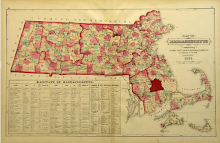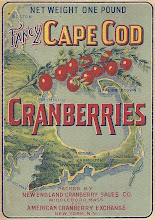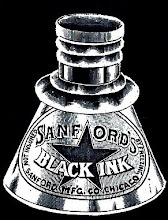Towards the end of his career, Bisbee authored a short pamphlet entitled Essence of Christianity as an attempt to distill his nearly 50 years experience in the pulpit into a few short pages. Though some would characterize Reverend Bisbee’s views as decidedly left wing and it was later written of Reverend Bisbee that “he was very active in politics, but found he could not serve two masters”, reading Bisbee’s own words one senses that he was motivated less by politics than by the social imperative implicit in Christianity.

“The Christianity of Christ”, wrote Bisbee, “when once discovered and accepted by the church will solve all our social problems. On no subject do the people need more enlightenment than on social conditions, and as to the remedies for social ills, no subject is more forbidden to the pulpit. For fear that some influential members may have their prejudices disturbed, the people are allowed to live on in conscious and unconscious economic and industrial sin.”
Bisbee’s conception of a potent Christianity underpinned both his social and political views, and he maintained that “nowhere is the Spirit of Truth more needed than in our politics.” Accordingly, Bisbee unflinchingly tackled head on two of the most divisive political issues of his day - racism and imperialism –hoping to deliberately disturb the prejudices of society’s more influential members and awaken their consciousness to social evils prevalent in American society.
Between 1877 and 1881, prior to entering the ministry, Bisbee served as the seventh president of Clark University in Atlanta, founded in the aftermath of the Civil War by the Freedman’s Aid Society of the Methodist Episcopal Church to provide education to African Americans. Bisbee oversaw the expansion of the college which was chartered as a university in 1877, and his tenure was marked by the acquisition of 450 acres in South Atlanta for a new campus. Bisbee’s attitude towards race, and his experience of southern racism first hand, undoubtedly influenced his support for Filipino independence twenty years later.

The fate of the Philippines following the American victory over Spain in the Spanish-American War in 1898 became a hotly debated topic and many influential people, like Bisbee, believed that the islands should be established as an independent republic. A number of these individuals along with Bisbee were active in the Boston-based Anti-Imperialist League which was founded on June 15, 1898, and provided a forum for their views. While some members, like Bisbee appear to have opposed America's Philippines policy on humanitarian grounds, others objected to American acquisition of the islands as contrary to the Constitution. Despite the disparate views within the organization, Bisbee, himself, was tapped by the League to speak publicly on campaign issues during the 1900 presidential campaign, and he was among august company, fellow speakers provided by the League including former Massachusetts governor George S. Boutwell, Charles Russell Codman, and William Lloyd Garrison, Jr.
Bisbee, for his part, was particularly critical of the McKinley administration’s imperialist policies and its failure to promote the establishment of a republic in accordance with the wishes of the Filipino people. At a campaign meeting held before Boston’s African American community at Faneuil Hall in October, 1900, “Rev. R. E. Bisbee lauded Mr. Bryan, saying that he was the cleanest man in politics in the United States. He asserted that there was a conspiracy of the monied trust of the world to prevent the rise of another republic [in the Philippines], and asked his hearers if they were going to sanction it. He charged that McKinley had committed a crime against free speech and free press by not permitting the sovereign people of the country to know the true story of the Philippines.”

Part of the story generally unknown to the American public to which Bisbee alluded was the administration's policy towards and treatment of the Filipinos. The platform of the League to which Bisbee subscribed unequivocally stated that "we protest against the extension of American sovereignty by Spanish methods." Foremost among those methods was what was then euphamistically referred to as the "water cure". Today, it is known as waterboarding.
The technique as practiced by the American military was described at the time by Private A. F. Miller, 32nd United States Volunteers:
This is the way we give them the water cure; lay them on their backs, a man standing on each hand and each foot, then put a round stick in the mouth and pour a pail of water in the mouth and nose, and if they don't give up pour in another pail. They swell up like toads. I'll tell you it is a terrible torture.
Despite the prevalence of such first-hand accounts, most were kept from the American public in order not to undermine support for the war or America's Philippine policy.
.

As a member of the Anti-Imperialist League, Bisbee was active in supporting the movement for Filipino independence and combating the representation of Filipinos as savages. Such a stance coupled with the willingness to meet with Filipino representatives characterized Bisbee, and those like him, as courageous individuals at a time when criticism of the government’s Filipino policy and questioning the imperial justification for withholding the Filipino’s right to self-determination could be construed as “giving aid and comfort to the enemy.” Later Bisbee would be one of 21 individuals who petitioned for an investigation into shady land transactions in the Philippines by Americans.
While Reverend Bisbee became less active politically following his arrival at South Middleborough in 1912, his intolerance for social inequality never left him, and he remained a staunch advocate for and practitioner of a deeply humane Christian social justice.
Illustrations:
Reverend Robert E. Bisbee, The Essence of Christianity (South Middleboro, MA: Reverend Robert E. Bisbee, 1931), second ed., frontispiece
.
The Essence of Christianity (South Middleboro, MA: Reverend Robert E. Bisbee, 1931), second ed., cover
In this slim pamphlet (it runs just slightly over 14 pages), Bisbee sought to distill his understanding of Christianity and social justice. The work proved popular, being printed in a number of editions. The second edition was prefaced by noted social activist and educational reformer Dorothy Canfield Fisher (1879-1958).
"Well, I Hardly Know Which to Take First!", Boston Globe, political cartoon, May 28, 1898.
This political cartoon is indicative of liberal and Democratic opinion in Massachusetts regarding the McKinley administration's Philippine policy, and reflects Reverend Bisbee's own views on what he regarded as an imperial policy.
Faneuil Hall, photograph, c. 1900
Known as the "Cradle of Liberty", Faneuil Hall long continued to be a venue for political meetings. In October, 1900, Bisbee and other members of the Anti-Imperialist League spoke to a large assembled crowd here, arguing that the McKinley administration was not being truthful with the American public.
"Holding His End Up", political cartoon, 1899
Political cartoons such as this reveal the racist nature of much of the American press' attitudes towards the native Filipinos. As a Christian, Bisbee was both shocked and dismayed by such depictions, and he forcefully argued for fair and equal treatment for the Filipinos based upon respect, equality and human dignity.
.
Sources:
Bisbee, Robert E. "Why I Oppose Our Phillipine Policy", Arena, August, 1902, 28:113-18
Bisbee, Robert E. "Democracy of Anti-Imperialism", Arena, February, 1909, 41:231-33
Bisbee, Robert E. The Essence of Christianity. South Middleboro, MA: Reverend Robert E. Bisbee, 1931. Second ed.

 “The Christianity of Christ”, wrote Bisbee, “when once discovered and accepted by the church will solve all our social problems. On no subject do the people need more enlightenment than on social conditions, and as to the remedies for social ills, no subject is more forbidden to the pulpit. For fear that some influential members may have their prejudices disturbed, the people are allowed to live on in conscious and unconscious economic and industrial sin.”
“The Christianity of Christ”, wrote Bisbee, “when once discovered and accepted by the church will solve all our social problems. On no subject do the people need more enlightenment than on social conditions, and as to the remedies for social ills, no subject is more forbidden to the pulpit. For fear that some influential members may have their prejudices disturbed, the people are allowed to live on in conscious and unconscious economic and industrial sin.” The fate of the Philippines following the American victory over Spain in the Spanish-American War in 1898 became a hotly debated topic and many influential people, like Bisbee, believed that the islands should be established as an independent republic. A number of these individuals along with Bisbee were active in the Boston-based Anti-Imperialist League which was founded on June 15, 1898, and provided a forum for their views. While some members, like Bisbee appear to have opposed America's Philippines policy on humanitarian grounds, others objected to American acquisition of the islands as contrary to the Constitution. Despite the disparate views within the organization, Bisbee, himself, was tapped by the League to speak publicly on campaign issues during the 1900 presidential campaign, and he was among august company, fellow speakers provided by the League including former Massachusetts governor George S. Boutwell, Charles Russell Codman, and William Lloyd Garrison, Jr.
The fate of the Philippines following the American victory over Spain in the Spanish-American War in 1898 became a hotly debated topic and many influential people, like Bisbee, believed that the islands should be established as an independent republic. A number of these individuals along with Bisbee were active in the Boston-based Anti-Imperialist League which was founded on June 15, 1898, and provided a forum for their views. While some members, like Bisbee appear to have opposed America's Philippines policy on humanitarian grounds, others objected to American acquisition of the islands as contrary to the Constitution. Despite the disparate views within the organization, Bisbee, himself, was tapped by the League to speak publicly on campaign issues during the 1900 presidential campaign, and he was among august company, fellow speakers provided by the League including former Massachusetts governor George S. Boutwell, Charles Russell Codman, and William Lloyd Garrison, Jr. Part of the story generally unknown to the American public to which Bisbee alluded was the administration's policy towards and treatment of the Filipinos. The platform of the League to which Bisbee subscribed unequivocally stated that "we protest against the extension of American sovereignty by Spanish methods." Foremost among those methods was what was then euphamistically referred to as the "water cure". Today, it is known as waterboarding.
Part of the story generally unknown to the American public to which Bisbee alluded was the administration's policy towards and treatment of the Filipinos. The platform of the League to which Bisbee subscribed unequivocally stated that "we protest against the extension of American sovereignty by Spanish methods." Foremost among those methods was what was then euphamistically referred to as the "water cure". Today, it is known as waterboarding.  As a member of the Anti-Imperialist League, Bisbee was active in supporting the movement for Filipino independence and combating the representation of Filipinos as savages. Such a stance coupled with the willingness to meet with Filipino representatives characterized Bisbee, and those like him, as courageous individuals at a time when criticism of the government’s Filipino policy and questioning the imperial justification for withholding the Filipino’s right to self-determination could be construed as “giving aid and comfort to the enemy.” Later Bisbee would be one of 21 individuals who petitioned for an investigation into shady land transactions in the Philippines by Americans.
As a member of the Anti-Imperialist League, Bisbee was active in supporting the movement for Filipino independence and combating the representation of Filipinos as savages. Such a stance coupled with the willingness to meet with Filipino representatives characterized Bisbee, and those like him, as courageous individuals at a time when criticism of the government’s Filipino policy and questioning the imperial justification for withholding the Filipino’s right to self-determination could be construed as “giving aid and comfort to the enemy.” Later Bisbee would be one of 21 individuals who petitioned for an investigation into shady land transactions in the Philippines by Americans. 





















+of+Smoky+Mountains+018.jpg)
2 comments:
Who can we thank for this very professional article?
Thanks for the kind words regarding the post. I write all the articles on the website myself, unless otherwise noted. (I work for a living in my spare time - LOL)!
Post a Comment